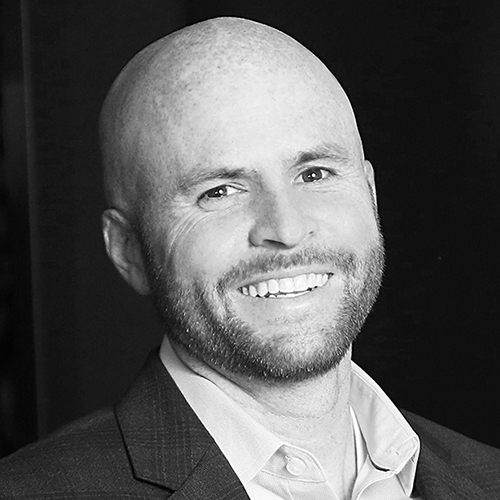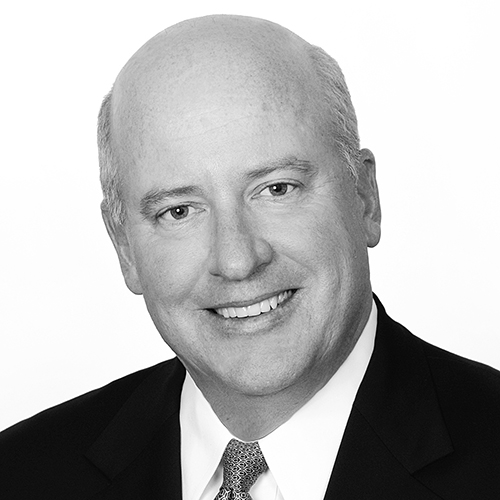In-house attorneys aren’t just lawyers: they’re businesspeople. Josh McMorrow knows this well, and he expect his team to know it, too.
McMorrow was part of the oil and gas industry, both in-house and outside it. He was a trial lawyer with Bracewell, counsel for industrial gas giant Air Liquide, and finally an attorney with the energy services-focused PSC. Today, McMorrow is part of Weatherford’s legal team.
“At Air Liquide, I discovered that I had a passion for the role of an in-house lawyer and sought to expand the breadth of my in-house practice,” McMorrow says. “I began to flesh out my transactional practice as well as continue managing the litigation of the company.”
As his responsibilities grew, McMorrow was named the general counsel for Air Liquide Engineering and Construction in the Americas. Eventually, he had the opportunity to expand his knowledge base to an EPC company with major projects in multiple countries and jurisdictions.
In 2012, McMorrow moved into the private equity world as senior vice president and general counsel of PSC, an environmental and industrial services company based in Houston, Texas. In 2014, a buyer approached PSC and ultimately bought its environmental services business, Stericycle.
“This was a fantastic transaction to negotiate and lead from a legal standpoint,” he says. “The industrial services business was subsequently sold to a financial buyer later that year. During those transactions, I got a call from a former colleague of mine from my Bracewell days, who was the general counsel at Weatherford. He was looking for someone to come run North America and asked if I knew of anyone. I laughed and told him that I knew someone perfect for the job.”
McMorrow serves as general counsel of North America and global head of litigation for Weatherford, one of the largest multinational oilfield services companies in the world. He oversees the legal operations of the business in the United States and Canada. The team consists of seven lawyers and a related group of contract managers in Houston, in addition to a four-person team with two lawyers in Calgary.
“When I joined Weatherford, I realigned the team so that each lawyer would have a distinct focus on a business unit and the associated product lines,” he explains. This strategy gave each business unit “their” lawyer, which embedded the attorneys in the business structure and strategy.
“Learn the business backward and forward. Read the annual report, attend the earnings calls, take the controller to lunch, and ask questions.”
He characterizes his leadership style as setting high expectations of individuals and teams, and he lets them achieve those expectations in the ways they feel are appropriate. “I expect excellence from my teams and my outside counsel, but I recognize that there isn’t one perfect way to get there and that I can continue to learn by letting smart people take the reins and tackle a tough problem,” he says. “I check in periodically and provide input and guidance.
“That said, I expect people to be fully prepared at a meeting or status update and come with proposed solutions,” he adds, “not just reports of roadblocks.”
McMorrow took over the role of global head of litigation in early 2015 and is focused on turning Weatherford’s litigation department into a global network. “Weatherford has many litigation challenges but also a number of clear opportunities, from my perspective,” he says. “As I have done in the past, an effective way to revamp a company’s litigation department is to implement an effective matter management and e-billing tool. I love data. I love to study it, to find out what it’s telling me, and to make real-world decisions based on that data to make teams and companies better.” His goal is to reduce outside spend by 15 to 20 percent.
McMorrow’s data-driven mind-set shouldn’t be surprising, given his role. In his opinion, the days of the academic general counsel are gone, which is why he’s passionate about adding operational value from the GC perspective.
“General counsels need to be leaders within an organization,” he says. “As an example, I worked with members of my legal operations team to develop an iPhone app that provides real-time information about Weatherford’s agreements with its customers.”
McMorrow credits two members of his team—Henal Patel and David Issa—as instrumental in the creation of the app. The team is working on a new version of the tool that will integrate with Salesforce data and put more real-time information in the hands of sales and operations.
McMorrow’s leadership on the business side has not gone unnoticed. The Legal 500 named him on its GC Powerlist and as its 2014 Individual of the Year: Energy.
“For myself and my team, I expect excellence at everything we do,” he says. “Yes, that means working hard, but it also means being prepared at every meeting, anticipating our clients’ needs, and being creative in our proposed solutions. I think this approach has resonated with my internal clients as well as the outside counsel that I work with.”
He says project management is among his most useful skills, and attorneys who want to follow his career path must learn to manage teams handling specific initiatives. “This has been extremely beneficial to accomplishing big messy tasks that have added a lot of value to the company,” he says. “Also, the minute you go in-house, you are in business. Learn the business backward and forward. Read the annual report, attend the earnings calls, take the controller to lunch, and ask questions. You will do your job better and be a better—and more respected—in-house lawyer.”


